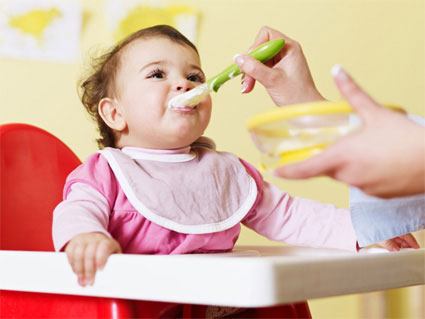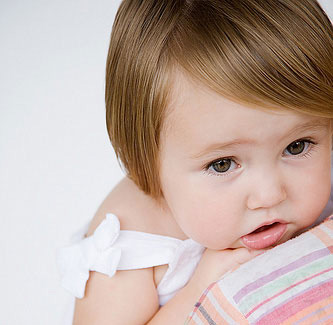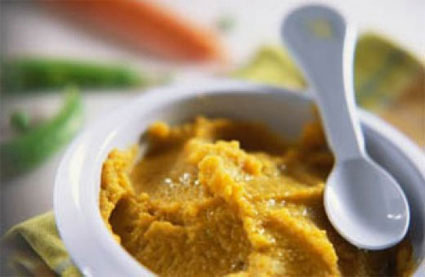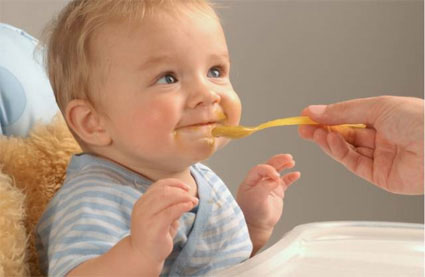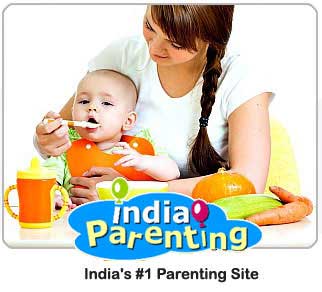Baby food safety measures should be given due importance to prevent infections. Read on to find baby food safety tips to be followed while feeding the baby and while preparing and storing the baby food. The immune system of small babies is not as well developed as that of adults. Thus, they are vulnerable to catching common infections easily. Hygiene must be given due importance while preparing, cooking and feeding solid foods to babies. As far as possible, babies should be fed freshly cooked, homemade food only. In case solid food is being introduced to a baby before she turns six months old extra care and caution must be exercised from a hygiene point of view. For such babies feeding spoons must be sterilised after every use. Other feeding equipments like the feeding bowls must always be washed well with hot water. Feeding equipments must also be dried completely before use. Following are some hygiene tips to be observed while preparing solid foods for small babies. In this articleKitchen HygieneHygiene Tips for Serving Baby FoodHygiene Tips for Storing Baby Food 1. Kitchen Hygiene There is no need to sterilise everything being used to cook baby food in a kitchen. A few simple things like washing hands before preparing the baby meal, changing and washing kitchen cloths at regular intervals and cleaning and washing highchairs, baby bibs and eating area with hot water will suffice. On the same lines small children eating finger food themselves must be made to wash their hands before eating every time. 2. Hygiene Tips for Serving Baby Food While reheating baby food, care must be exercised to ensure that it is piping hot throughout. Thereafter, it should be cooled completely before being fed to the baby. Food temperature can be tested by placing a small quantity of food on the wrist. Food must be stirred well to avoid hot spots in case of using a microwave to heat up baby food. Baby food must be reheated only once. It is also essential to always look for signs and if possible taste baby food to ensure that it is well cooked. 3. Hygiene Tips for Storing Baby Food Freshly cooked food is the best for babies. However, for any reason whatsoever if this is not possible food can be prepared in advance and stored. Food must be completely cooled before storing. Food which will not get used up within 24 hours must be frozen immediately after being cooked. Leftover food in a baby bowl must be thrown away and never reused. This kind of food which has been in contact with the baby’s saliva will contain bacteria which are capable of multiplying rapidly when stored for reuse. The label of prepackaged baby food must be carefully checked to ascertain the best-before and use-by dates. Leftover packaged food in jars can be refrigerated and consumed within 24 hours of it being opened. However, any left over of jar food that has been taken out and reheated must be never be reused. Fridge being used to store prepared baby food must be in good running condition and cleaned at regular intervals. Ideal temperature levels should be maintained to ensure that food remains fresh. Above mentioned guidelines are some of the basic hygiene tips to be borne in mind while preparing, storing and feeding a baby. In addition to these, depending upon specific circumstances like sickness of any kind additional precautions may have to be adopted. Ultimately food impacts a baby directly. Hence, it is important to take all precautions to ensure that the food eaten by a baby does not harm her in any way.
Baby food safety measures should be given due importance to prevent infections. Read on to find baby food safety tips to be followed while feeding the baby and while preparing and storing the baby food. The immune system of small babies is not as well developed as that of adults. Thus, they are vulnerable to catching common infections easily. Hygiene must be given due importance while preparing, cooking and feeding solid foods to babies. As far as possible, babies should be fed freshly cooked,
homemade food only.
In case solid food is being introduced to a baby before she turns six months old extra care and caution must be exercised from a hygiene point of view. For such babies feeding spoons must be sterilised after every use. Other feeding equipments like the feeding bowls must always be washed well with hot water. Feeding equipments must also be dried completely before use.
Following are some hygiene tips to be observed while preparing solid foods for small babies.
1. Kitchen Hygiene
There is no need to sterilise everything being used to cook baby food in a kitchen. A few simple things like washing hands before preparing the baby meal, changing and washing kitchen cloths at regular intervals and cleaning and washing highchairs, baby bibs and eating area with hot water will suffice. On the same lines small children eating finger food themselves must be made to wash their hands before eating every time.
2. Hygiene Tips for Serving Baby Food
While reheating baby food, care must be exercised to ensure that it is piping hot throughout. Thereafter, it should be cooled completely before being fed to the baby. Food temperature can be tested by placing a small quantity of food on the wrist. Food must be stirred well to avoid hot spots in case of using a microwave to heat up baby food. Baby food must be reheated only once. It is also essential to always look for signs and if possible taste baby food to ensure that it is well cooked.
3. Hygiene Tips for Storing Baby Food
Freshly cooked food is the best for babies. However, for any reason whatsoever if this is not possible food can be prepared in advance and stored. Food must be completely cooled before storing. Food which will not get used up within 24 hours must be frozen immediately after being cooked.
Leftover food in a baby bowl must be thrown away and never reused. This kind of food which has been in contact with the baby’s saliva will contain bacteria which are capable of multiplying rapidly when stored for reuse.
The label of prepackaged baby food must be carefully checked to ascertain the best-before and use-by dates. Leftover packaged food in jars can be refrigerated and consumed within 24 hours of it being opened. However, any left over of jar food that has been taken out and reheated must be never be reused.
Fridge being used to store prepared baby food must be in good running condition and cleaned at regular intervals. Ideal temperature levels should be maintained to ensure that food remains fresh.
Above mentioned guidelines are some of the basic hygiene tips to be borne in mind while preparing, storing and feeding a baby. In addition to these, depending upon specific circumstances like sickness of any kind additional precautions may have to be adopted. Ultimately food impacts a baby directly. Hence, it is important to take all precautions to ensure that the food eaten by a baby does not harm her in any way.












